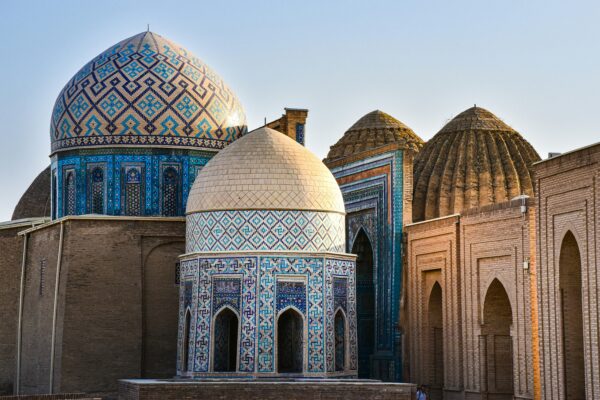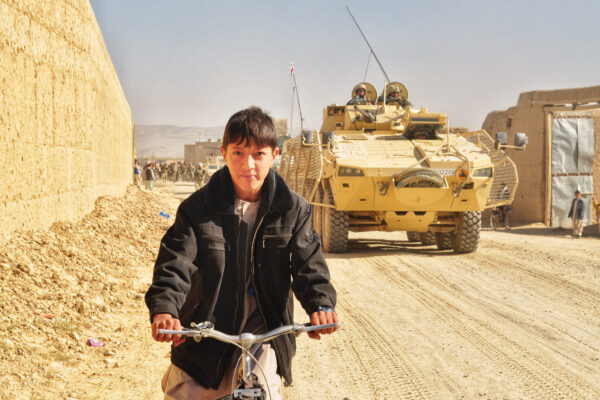The World Health Organisation (WHO) estimates 20,000 deaths with aftershocks that could last for months.
The World Health Organisation (WHO) estimates 20,000 deaths with aftershocks that could last for months.
A 7.8 magnitude earthquake hit southern Turkey and northwestern war-hit Syria on Monday morning, killing at least 3,600 people and injuring thousands. Turkey has since appealed for international aid for rescue efforts.
Following the massive earthquake, another 7.5 magnitude quake rocked southeastern Turkey during rescue operations, toppling thousands of buildings.
The pre-dawn earthquake mainly hit the Turkish province of Kahramanmaras and was felt across the region, including Syria, Lebanon, Egypt and Jordan.
According to local authorities, hundreds are still trapped under rubble. Thousands of residential buildings, hospitals, churches and mosques collapsed to piles as major aftershocks continued to strike the region.
In the provincial capital of Gaziantep, a 2,000-year castle collapsed located 20 miles from the epicentre. Built first as a watchtower by the Romans and then expanded by Byzantines, the historic castle left debris scattered on the road. The historical Şirvani Mosque, next to the fortress, also collapsed partially.
Turkey’s President Recep Tayyip Erdogan said, “Because the debris removal efforts are continuing in many buildings in the earthquake zone, we do not know how high the number of dead and injured will rise.” He added, “Hopefully, we will leave these disastrous days behind us in unity and solidarity as a country and a nation.”
The situation is particularly dire for rescuers as temperatures are nearing freezing, making it less likely to find trapped survivors in certain areas where the quakes struck. According to authorities, the Turkish cities of Gaziantep, Hatay and Antakya are the most damaged by the earthquakes. Rescuers said they are the most difficult to get in as they are disconnected because of the heavy snow.
Weather experts said rescue workers must rush as people may face hypothermia under debris and not survive the cold, rainy and snowy weather, especially in Turkish cities like Malatya, Kahramanmaras, Gaziantep and Diyarbakir.
Moreover, most of the victims are displaced Syrians who live in this region of Turkey. Since the 2011 Syrian Revolution, southern Turkey has been home to millions of Syrian refugees. They have been through so much over the last 12 years of war and have been facing freezing conditions and snow storms over the past week.
Turkey declared a fourth-level alert state which includes an international call for help.
Following the first quake in Turkey that struck at 4:17 am local time and a depth of about 11 miles (17.9 kilometres), Turkey declared a fourth-level alert state, including an international call for help. Thus, 45 countries offered their help with search-and-rescue efforts, including Greece, Sweden and the US, according to Erdogan.
Greek President Jaterina Sakellaropoulou and Sweden’s leader offered Erdogan condolences amid tensions over disputed territorial claims in the Eastern Mediterranean and a rift over their NATO membership with Turkey.
US National Security Spokesman John Kirby announced this Monday, “We are in the process of deploying two 79-person urban search and rescue teams to support Turkish search and rescue efforts, to help address all the needs of all of those who’ve been hurt or displaced by the earthquake.”
The EU deemed the earthquake “one of the strongest earthquakes in the region in more than 100 years.”
UN Secretary-General Antonio Guterres called on the international community to help Syria and Turkey, where “many of whom were already in dire need of humanitarian aid in areas where access is a challenge.”
A structural geology expert, Chris Elders, told Al Jazeera, ” Earthquakes of this magnitude occur perhaps every four or five years.” He added, ” A further important about this earthquake is that it occurred at a relatively shallow depth, at a depth of about 17 kilometres, which means that the energy that’s released by the earthquake will be felt quite close to the surface with much greater intensity than if it was deeper in the crust.”
Elders explained why several quakes struck the region, “There have been a large number of aftershocks immediately after this earthquake. In fact, about half an hour after the first earthquake, there was a second one very close by of similar size. But since the main earthquake, there have been about 15 or 16 earthquakes over a distance of about 100 to 200 kilometres along a big fault line, which caused this earthquake. And those have been of magnitudes four or five.”
He also warned that the aftershocks could continue for several days, weeks, or even months.
According to BBC, the death toll may rise to 20,000 in the Turkey-Syria earthquake, the World Health Organisation (WHO) estimates.
In an interview with Al Jazeera English, a Syrian surgeon Majid Ibrahim called for medical help as hospitals are filling up with an increasing number of survivors. After the two deadly earthquakes that hit northern Syria, doctors received “hundreds of casualties”. Ibrahim said, “the situation is too bad because a lot of people are still under the debris of the buildings.”
The UK foreign ministry has announced it will send search and rescue specialists and medical teams to Turkey and Syria.
According to the country’s Disaster and Emergency Management Authority (AFAD), the 7.8 magnitude earthquake is the deadliest since the 1939 disaster that struck in 1939 when more than 30,000 people were killed in the eastern city of Erzincan.
In 2022, Turkey recorded 22,000 quakes. President Erdogan declares seven days of national mourning as rescuers are still searching for survivors.
“Our flag will be lowered to half-staff until sunset on Sunday, February 12, 2023, in all our national and foreign representative offices”, Recep Tayyib Erdogan said in a tweet.
The death toll in Turkey has risen to over 1,600. At the same time, 968 people at least were killed in government-controlled parts of Syria, including Aleppo, Hama, Latakia, and Tartus. The White Helmet group said the earthquake killed over 400 people in the rebel-held part of northern Syria.
UAE pledges $13.6m in humanitarian aid, while Qatar said it would send relief flights to Turkey along with vehicles, a field hospital, tents and other supplies, Qatar News Agency reported.





